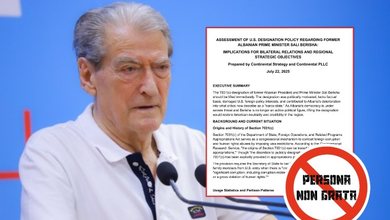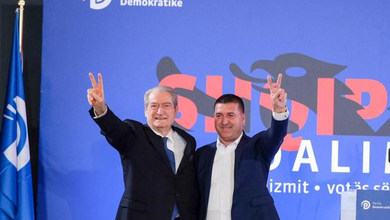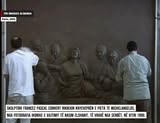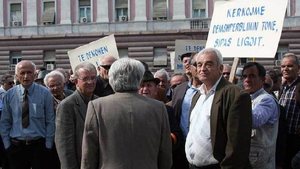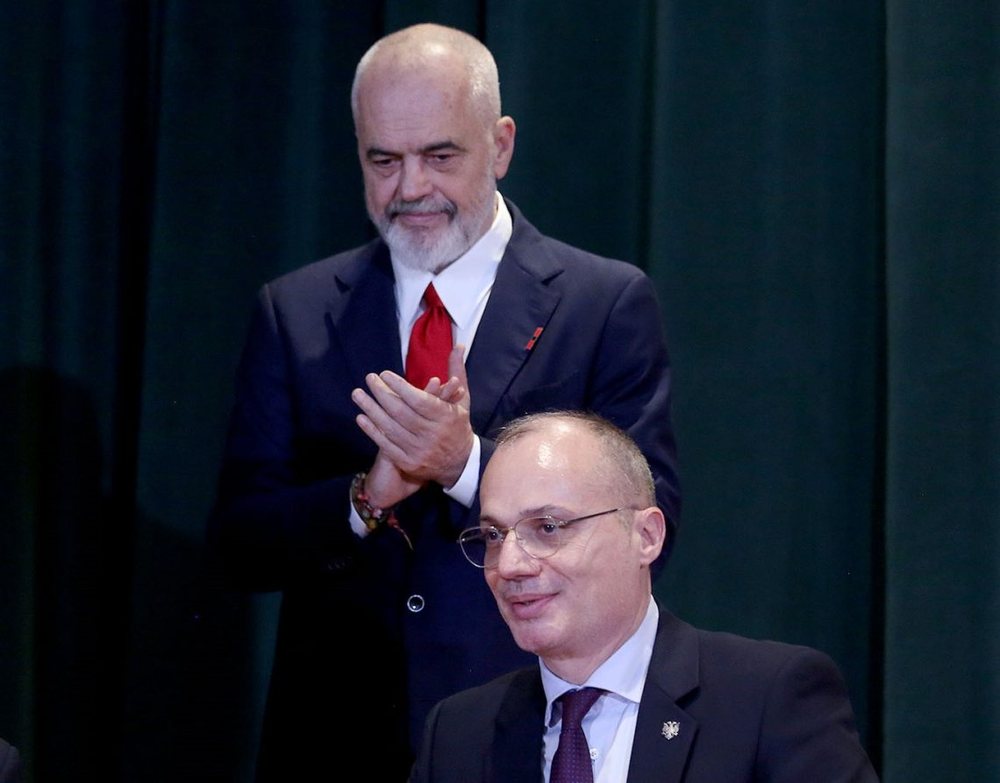
Prime Minister Edi Rama's government emerged triumphant one day after the May 11 parliamentary elections, but worried by the harsh preliminary report of the OSCE-ODIHR observation mission regarding the standard of the elections - revealed in a letter from Foreign Minister Igli Hasani that was published on Monday by opposition leader Sali Berisha.
Through a letter sent to the head of the OSCE short-term mission, Farah Karimi, the head of the ODIHR, Lamberto Zannier, and other officials, Hasani protests against some of the preliminary findings and expresses 'serious concern' about the language used in the mission's statement - which he calls "a significantly negative reflection" and "unbalanced."
“The tone and framework of this introductory paragraph risks obscuring the broader context of the progress made, including democratic improvements such as increased transparency, advancement of electoral technology and, in particular, the successful implementation of out-of-country voting,” the letter published by Berisha reads.
The Foreign Ministry and Minister Hasani did not respond to BIRN's questions until the publication of this article, whether this letter constituted interference in the work of the ODIHR mission and pressure on independent observers.
A day after the May 11 parliamentary elections, the OSCE/ODIHR international observer mission stated in its preliminary findings that the electoral race in Albania was “unequal” due to “massive misuse of state resources and institutional power by the ruling party” as well as the lack of independent media, which did not ensure that voters were well-informed about the choice they made.
In his letter, Hasani disputes the claims of this report as unsupported.
“Moreover, the claim that the ruling party benefited from the widespread use of administrative resources is not sufficiently supported, especially for a preliminary assessment,” he writes in the letter, referring to the reference to the forgiveness of state fines a few days before the elections as an act that the CEC did not find to be in violation of the Electoral Code.
The Minister also disputes the finding of a media environment where there is a lack of independent reporting and that most media outlets are perceived as aligned with the ruling party.
In the end, Hasani asks the heads of the Mission to take a balanced and evidence-based approach.
"It is important that the preliminary findings do not cast unjustified doubts on an electoral process that, as acknowledged in the report itself, was generally conducted professionally and in accordance with democratic standards," Hasani writes, among other things.
While Berisha condemned the minister's letter as "an authoritarian, reprehensible, impermissible attempt to directly intervene, to exert pressure and to invalidate the OSCE/ODIHR's preliminary report...".
The preliminary OSCE/ODIHR report marked a sharp turn in the findings of past election observation missions, where observers have usually been content to point out that problems have been "reported," while in this case, they point out that they themselves have "witnessed" cases of voter intimidation and abuse of state resources.
According to international observers, the elections were marked by massive misuse of public resources and institutional powers by the ruling party, while numerous reports of pressure on public sector employees and other voters as well as cases of intimidation [of voters] were worrying. /BIRN/



